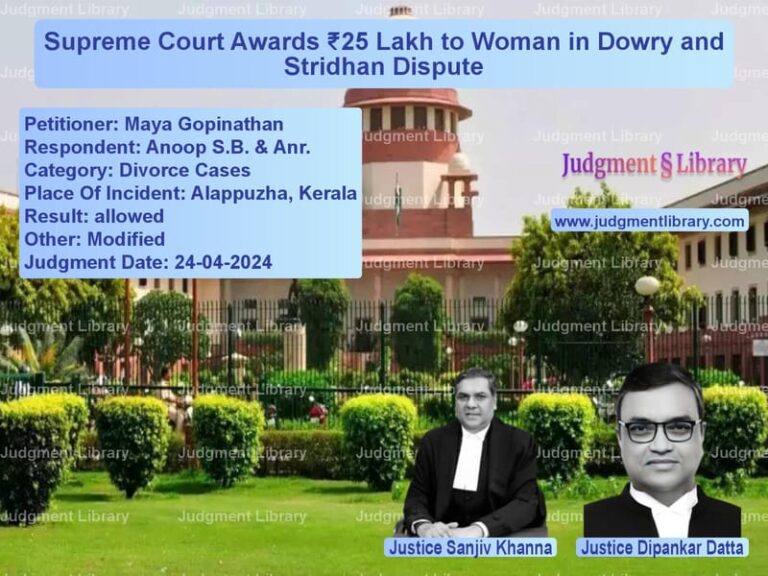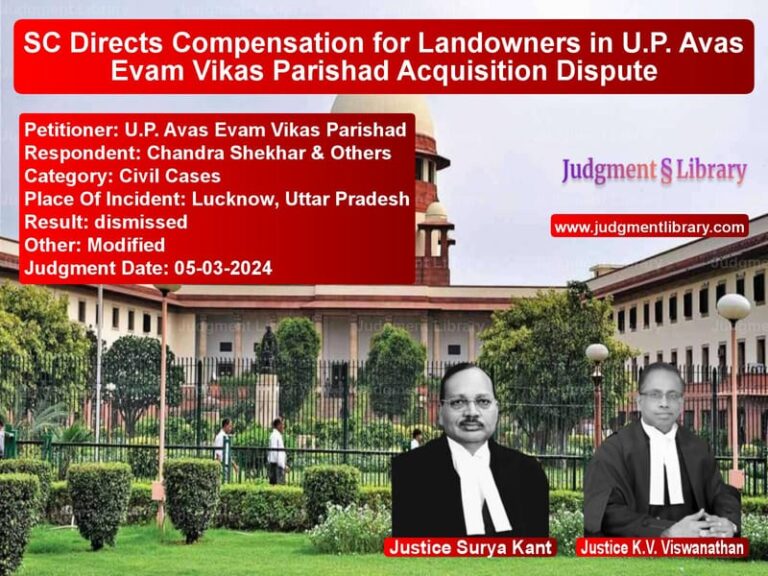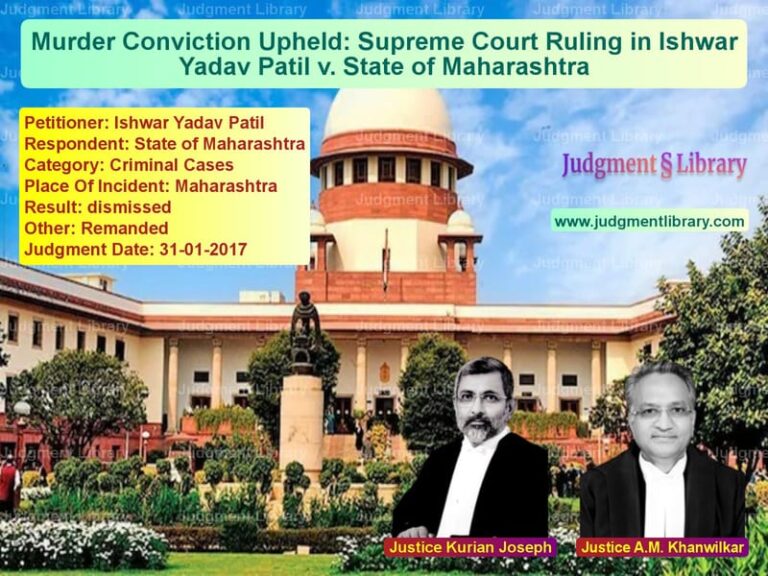Supreme Court Strikes Down Show Cause Notice Under Repealed Gold Control Act
The Supreme Court of India, in a significant ruling, held that a show cause notice issued under the repealed Gold Control Act, 1968, does not survive after the Act was abolished. The Court, in Sushila N. Rungta (D) Thr. LRs v. The Tax Recovery Officer-16(2) & Ors., ruled that the repeal of the Act demonstrated a clear legislative intent to remove all past liabilities associated with it. This judgment reaffirmed that no legal proceedings could continue based on a repealed statute unless explicitly saved.
Background of the Case
The case originated from a show cause notice dated June 1, 1971, issued against the predecessor of the appellant, regarding the possession of gold that was allegedly not declared as per the Gold Control Rules. The authorities sought to confiscate the gold and impose penalties under Rule 126-I(16) of the Gold Control Rules, 1962.
After the repeal of the Gold Control Act in 1990, the appellant challenged the continued enforcement of proceedings under the repealed law. The Delhi High Court upheld the show cause notice, leading to an appeal before the Supreme Court.
Key Legal Issues
- Did the show cause notice and subsequent proceedings survive after the repeal of the Gold Control Act?
- Did the absence of a savings clause in the repeal Act indicate an intent to terminate all pending cases?
- Was the statement of objects and reasons relevant in determining the legislative intent?
Arguments of the Petitioner (Sushila N. Rungta)
- The repeal of the Gold Control Act, 1968, was absolute, without any saving clause.
- The statement of objects and reasons clearly expressed the government’s intent to eliminate hardships caused by the Act.
- Since the law itself was repealed, any proceedings initiated under it automatically lapsed.
Arguments of the Respondent (Tax Recovery Officer & Ors.)
- The absence of a savings clause did not mean that pending proceedings were automatically quashed.
- Section 6 of the General Clauses Act should apply, preserving all proceedings unless a contrary intent was expressed.
- The High Court had rightly upheld the show cause notice based on prior judicial rulings.
Supreme Court’s Analysis
The Supreme Court examined whether Section 6 of the General Clauses Act, 1897, applied to the repeal of the Gold Control Act. The Court emphasized that:
- The statement of objects and reasons showed a clear intent to completely repeal the Gold Control Act without retaining any obligations.
- The Act had been described as “regressive” and “causing hardship and harassment to artisans and small self-employed goldsmiths.”
- Previous repeals of similar legislation had included savings clauses, but the 1990 repeal did not, indicating a deliberate intent to nullify all past proceedings.
The Court relied on its earlier ruling in New India Assurance Co. Ltd. v. C. Padma (2003) to hold that the absence of a savings clause meant that pending proceedings did not survive the repeal.
Final Judgment
The Supreme Court ruled:
- The show cause notice dated June 1, 1971, was no longer valid.
- All proceedings initiated under the repealed Gold Control Act were quashed.
- The High Court’s ruling upholding the show cause notice was set aside.
The judgment concluded:
“When a law is repealed without a saving clause, pending proceedings under it do not survive unless a contrary legislative intent is shown.”
Implications of the Judgment
This ruling has significant implications for tax and regulatory laws:
- Finality of Repeals: The absence of a savings clause means all past liabilities under the repealed law are extinguished.
- Legislative Intent Matters: Courts will look at the purpose behind repealing a law to determine if old cases should continue.
- Protection Against Arbitrary Proceedings: The ruling protects individuals from continued legal action under obsolete laws.
The Supreme Court’s decision reaffirms that laws must be enforced with clarity and fairness, ensuring that repealed legislation does not continue to burden individuals.
Petitioner Name: Sushila N. Rungta (D) Thr. LRs.Respondent Name: The Tax Recovery Officer-16(2) & Ors..Judgment By: Justice R.F. Nariman, Justice Navin Sinha.Place Of Incident: Delhi.Judgment Date: 30-10-2018.
Don’t miss out on the full details! Download the complete judgment in PDF format below and gain valuable insights instantly!
Download Judgment: Sushila N. Rungta (D vs The Tax Recovery Off Supreme Court of India Judgment Dated 30-10-2018.pdf
Direct Downlaod Judgment: Direct downlaod this Judgment
See all petitions in Tax Refund Disputes
See all petitions in Banking Regulations
See all petitions in Income Tax Disputes
See all petitions in Judgment by Rohinton Fali Nariman
See all petitions in Judgment by Navin Sinha
See all petitions in allowed
See all petitions in Quashed
See all petitions in supreme court of India judgments October 2018
See all petitions in 2018 judgments
See all posts in Taxation and Financial Cases Category
See all allowed petitions in Taxation and Financial Cases Category
See all Dismissed petitions in Taxation and Financial Cases Category
See all partially allowed petitions in Taxation and Financial Cases Category







